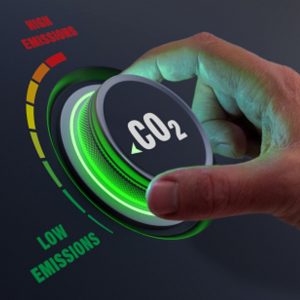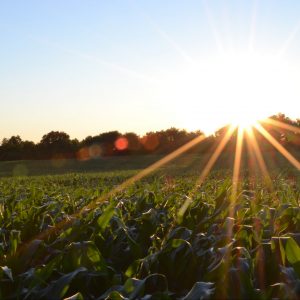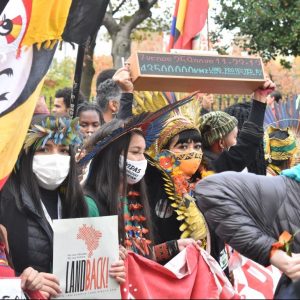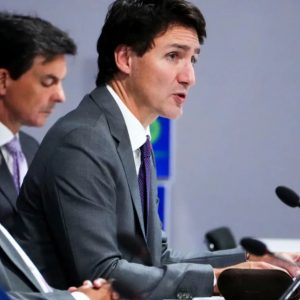Climate change denial 2.0 was on full display at COP26, but there was also pushback
The recent climate conference in Glasgow, Scotland, shows that climate change deniers have shifted their tactics to thwart the efforts of countries to phase out fossil fuel use.
This article by David Tindall, Professor, Department of Sociology, UBC, originally appeared in The Conversation on November 18, 2021.
Capitalism needs a redo
We are now in a climate crisis, as has been declared in a number of political jurisdictions — such as the City of Vancouver — and organizations including the University of British Columbia.
The role of capitalism in addressing the problem is relevant because struggles over how to address climate change are based on differing evaluations of capitalism. There are many social justice issues important in this debate, but I will focus mostly on some environmental, and political considerations.
This article by David Tindall, Professor, Department of Sociology, UBC, originally appeared in the National Observer on November 11, 2021.
When will steel go green? How B.C. coal fuels one of the highest emitting industries in the world
According to a research group, steel production is responsible for about 7% of global greenhouse gas emissions.
The calls from COP26 have been clear: the world must stop burning coal if it hopes to avoid catastrophic global temperature rise. Dr. John Steen, a professor of mining engineering at UBC’s faculty of applied science, gave comments about clean hydrogen.
This article originally appeared in the CBC on November 12, 2021.
Canada has a quarter of world’s soil carbon. Keeping it in the ground could curb climate change, experts say
Canada has 384 billion tonnes carbon stored in peatland and other soils according to a new study. UBC forestry professor Dr. Suzanne Simard commented on a study that puts a spotlight on large soil carbon storage in terrestrial ecosystems of Canada. She said soil carbon faces several threats and this would, in turn, accelerate climate change.
This article by Inayat Singh, Alice Hopton originally appeared in the CBC on November 10, 2021.
Scientists urge COP26 not to sideline fishery issues
Dr. Rashid Sumaila, a professor at the Institute for the Oceans and Fisheries and the school of public policy and global affairs at UBC, was quoted about the importance of healthy fisheries.
This article originally appeared in the UnderCurrent on November 10, 2021.
‘Hot air in Glasgow means it’s time for radical leadership’: Read full letter signed by more than 200 academics
Dr. William Rees, a professor emeritus at UBC’s faculty of applied science’s school of community and regional planning, is among the signatories to an open letter urging communities to lead their own emergency response to slash dangerous greenhouse gas emissions.
Hundreds of scholars sign open letter urging communities to lead their own ‘emergency response’ after ‘failure’ of Cop26 to slash dangerous greenhouse gas emissions.
This article originally appeared in the Independent on November 11, 2021.
Focus on food technology at climate conference ignores what most of the world’s farmers need, experts say
Forty-five governments led by the U.K. pledged Saturday at a global climate change conference in Glasgow, Scotland, to spend billions on transforming the world’s farms, fisheries and forests in an effort to make our food more sustainable.
This article by Marc Fawcett-Atkinson originally appeared in the National Observer on November 8, 2021.
Young people like Greta Thunberg will ensure climate activism is here to stay
A youth-focused climate strike march and rally drew at least 25,000 people to the streets of Glasgow on Nov. 5. Hundreds of events in other cities were also held that day. Fridays for Future states the strikes occurred in 81 countries, spread across 379 cities and involved more than 270,000 participants. Greta Thunberg, who is now 18 and arguably the highest-profile climate activist in the world, “headlined” the Glasgow event.
This article by David Tindall, Professor, Department of Sociology, UBC, originally appeared in the National Observer on November 9, 2021.
When will climate justice be served?
Climate justice is a rights-based approach to addressing the problems of increased warming temperatures, droughts, floods, more extreme storms, increased disease, crop failures, climate migration, and increased climate change-related social conflict.
5 ways to sort substance from spin in climate politics
CBC asked UBC political science professor, Dr. Kathryn Harrison, how to sort substance from spin in climate politics and how to hold politicians accountable.
Earlier this week, Prime Minister Justin Trudeau stood behind a podium at COP26 and encouraged the world to follow Canada’s lead to limit warming to 1.5 C, the target set under the Paris Agreement.
The prime minister pointed to the example set by his government’s carbon pricing framework and announced that Canada would also start capping oil and gas sector emissions because “what’s even better than pricing emissions is ensuring that they don’t happen in the first place.”










